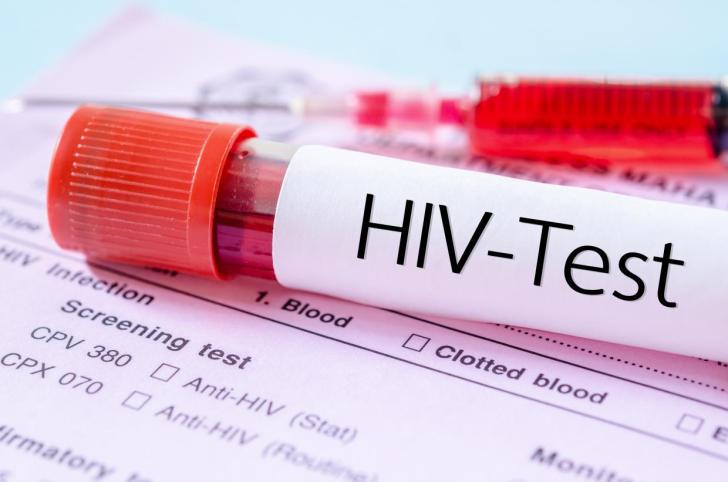News / National
Zimbabwe High Court rules HIV no longer deadly
05 Feb 2025 at 12:05hrs |
0 Views

The High Court has advised convicted criminals to cease raising their HIV status as a special circumstance during mitigation, stating that the infection is no longer considered deadly due to advancements in treatment.
This ruling came after Justices Munamato Mutevedzi and Naison Chivayo handed down their decision in the appeal of two convicts convicted for unlawful possession of ivory tusks. Both convicts, whose identities remain confidential due to their HIV status, had been sentenced to minimum mandatory prison terms of 11 years and 9 years, respectively.
During the appeal, both convicts raised their HIV-positive status as a reason for seeking a more lenient sentence, but the court rejected this argument. The judges pointed out that HIV is no longer a terminal illness, thanks to significant advancements in medical treatment.
In their ruling, Justices Mutevedzi and Chivayo stated that HIV no longer constitutes a "special circumstance" when determining sentences. The court acknowledged that while HIV was once viewed as a fatal disease, modern treatments now allow individuals living with HIV to lead long and healthy lives. The judges emphasized that the virus can be effectively controlled through treatment, rendering the argument for special mitigation less relevant in sentencing decisions.
"This is no longer the case," the judges said regarding the former perception of HIV as a death sentence. "Many forms of treatment have been developed over the years to mitigate the effects of HIV on humans."
They referred to medical experts, including Dr. Amos, who stated that modern treatments can reduce the virus levels in the body to undetectable levels, preventing transmission and allowing people with HIV to live without significant health impacts.
The judges further emphasized that HIV should no longer be considered a distinguishing factor in sentencing, stating that the condition has now been downgraded to the level of other diseases like the common cold, diabetes, and hypertension. They pointed out that there are more deadly conditions than HIV, and therefore, it should not be treated as a special circumstance when sentencing offenders.
The ruling also referenced a previous High Court decision in 1993, where the court rejected the argument that HIV infection should influence sentencing. In that case, the court upheld the sentence despite the convict's HIV status, reinforcing the principle that health conditions should not be a reason to deviate from prescribed minimum sentences.
Ultimately, the High Court upheld the original sentences of 11 and 9 years for the two ivory traffickers, reinforcing the stance that HIV status, like any other medical condition, does not warrant a reduction in sentencing.
In conclusion, the judges reiterated that HIV-positive individuals, like others with ailments, must not seek to reduce their sentences on the grounds of their health status, calling it an abuse of medical conditions.
This ruling came after Justices Munamato Mutevedzi and Naison Chivayo handed down their decision in the appeal of two convicts convicted for unlawful possession of ivory tusks. Both convicts, whose identities remain confidential due to their HIV status, had been sentenced to minimum mandatory prison terms of 11 years and 9 years, respectively.
During the appeal, both convicts raised their HIV-positive status as a reason for seeking a more lenient sentence, but the court rejected this argument. The judges pointed out that HIV is no longer a terminal illness, thanks to significant advancements in medical treatment.
In their ruling, Justices Mutevedzi and Chivayo stated that HIV no longer constitutes a "special circumstance" when determining sentences. The court acknowledged that while HIV was once viewed as a fatal disease, modern treatments now allow individuals living with HIV to lead long and healthy lives. The judges emphasized that the virus can be effectively controlled through treatment, rendering the argument for special mitigation less relevant in sentencing decisions.
"This is no longer the case," the judges said regarding the former perception of HIV as a death sentence. "Many forms of treatment have been developed over the years to mitigate the effects of HIV on humans."
They referred to medical experts, including Dr. Amos, who stated that modern treatments can reduce the virus levels in the body to undetectable levels, preventing transmission and allowing people with HIV to live without significant health impacts.
The judges further emphasized that HIV should no longer be considered a distinguishing factor in sentencing, stating that the condition has now been downgraded to the level of other diseases like the common cold, diabetes, and hypertension. They pointed out that there are more deadly conditions than HIV, and therefore, it should not be treated as a special circumstance when sentencing offenders.
The ruling also referenced a previous High Court decision in 1993, where the court rejected the argument that HIV infection should influence sentencing. In that case, the court upheld the sentence despite the convict's HIV status, reinforcing the principle that health conditions should not be a reason to deviate from prescribed minimum sentences.
Ultimately, the High Court upheld the original sentences of 11 and 9 years for the two ivory traffickers, reinforcing the stance that HIV status, like any other medical condition, does not warrant a reduction in sentencing.
In conclusion, the judges reiterated that HIV-positive individuals, like others with ailments, must not seek to reduce their sentences on the grounds of their health status, calling it an abuse of medical conditions.
Source - NewZimbabwe
Join the discussion
Loading comments…
























